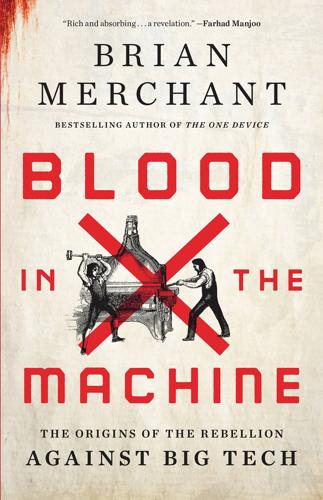
Blood in the Machine: The Origins of the Rebellion Against Big Tech
by
Brian Merchant
Published 25 Sep 2023
The two strangers, one who called himself John Smith, nonetheless sat down beside Milnes and bought him a drink, then another. After enough small talk had passed, Smith and his companion turned the conversation to the Luddites. “Then you know this General Ludd, perhaps?” one asked. “General Ludd!” Milnes laughed—it was a ridiculous question. “Nay, I know no generals.” “But didn’t he command at Cartwright’s affair? We were told at Manchester that they had a commander who was called General Ludd.” “Well they might call him so,” Milnes said, unthinkingly, “but that was not his real name. I happen to know that much.” With that, the two men said that their real purpose in coming was to be “twisted in,” to take the oath, to join the Luddites.
…
How Uprisings Against Big Tech Begin Acknowledgments Discover More About the Author Also by Brian Merchant Selected Bibliography Notes For Russell, Aldus, and Corrina—now and future machine breakers. Explore book giveaways, sneak peeks, deals, and more. Tap here to learn more. Chant no more your old rhymes about bold Robin Hood, His feats I but little admire I will sing the Achievements of General Ludd Now the Hero of Nottinghamshire. —“General Ludd’s Triumph,” sung to the tune of “Poor Jack” Killer Mike: Are jobs still necessary? Should we still be pushing that agenda of capitalism that forces people to work at the lowest possible wage to enrich the top? El-P: I mean we’ll find out soon when the robots really rise.
…
Whereas, it hath been represented to us, the General Agitators, for the Northern Counties, assembled to redress the Grievances of Operative Mechanics, That Charles Lacy, of the Town of Nottingham, British Lace Manufacturer, has been guilty of diverse fraudulent, and oppressive, Acts—whereby he has reduced to poverty and Misery Seven Hundred of our beloved Brethren. The complaint went on, outlining grievances and promising vengeance unless the machines were shut down. It was signed, “General Ludd.” The missives became the machine breakers’ calling card. A torrent of subsequent letters, written in various hands, bore that name: Ned Ludd. Some called him General Ludd, some Captain, others King. This one accused Lacy of profiting off the lost jobs to the tune of fifteen thousand pounds, and of giving local tradesmen a bad reputation with his factory’s shoddy workmanship. The turmoil that followed the letters could not be confused for random acts of vandalism.
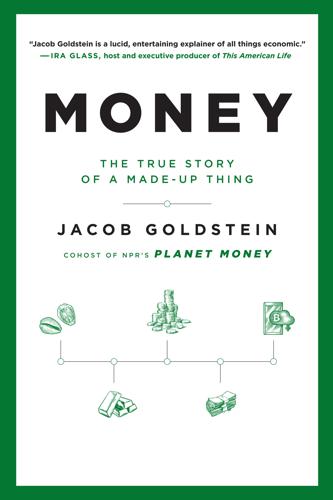
Money: The True Story of a Made-Up Thing
by
Jacob Goldstein
Published 14 Aug 2020
Sir Information has just been given in that you are a holder of those detestable Shearing Frames, and I was desired by my Men to write to you and give you fair Warning to pull them down… if they are not taken down by the end of next Week, I will detach one of my Lieutenants with at least 300 Men to destroy them and furthermore take Notice that if you give us the Trouble of coming so far we will increase your misfortune by burning your Buildings down to Ashes and if you have Impudence to fire upon any of my Men, they have orders to murder you, & burn all your Housing… Signed by the General of the Army of Redressers Ned Ludd… Edward “Ned” Ludd, rebel leader, founder of the Luddites, was said to be holed up in Sherwood Forest, in Nottinghamshire, like Robin Hood. But also like Robin Hood, Ned Ludd was a myth. There may have been a stocking knitter of that name a few decades before who got mad and smashed up some stocking-making equipment. That’s what one newspaper editor said, anyway. But General Ludd, leader of the army of redressers, was an invention—someone made him up, and the myth spread. People had been writing angry letters before, even occasionally attacking factories. But somehow, appointing a nonexistent general changed things. The invention of Ned Ludd made the whole thing seem bigger.
…
“No, I’m Ned Ludd!” One government official got a letter from someone claiming to be Ned Ludd’s solicitor filing charges against him in Ludd Court. People sang about Ludd in pubs. Chant no more your old rhymes about bold Robin Hood His feats I but little admire I will sing the Achievements of General Ludd Now the Hero of Nottinghamshire. Ludd burned down a cotton weaving factory and attacked machines used to crop wool. There were dozens and dozens of attacks, and they were spreading. It was only a few decades since the revolution in France, and the authorities in Britain were terrified. In 1812, Parliament introduced a bill to make destroying machines punishable by death.

The Twittering Machine
by
Richard Seymour
Published 20 Aug 2019
The very name ‘Luddite’ deliberately evoked a fictitious leader, Ned Ludd, a product of legend and fantasy, fear of whom had British authorities and spies searching high and low for sign of him. His supporters decided that Mr Ludd lived in Sherwood Forest, home of the equally legendary Robin Hood, and signed their letters, ‘Ned Ludd’s Office, Sherwood Forest’. They cross-dressed and marched as ‘General Ludd’s wives’.31 Luddism in the twenty-first century is an entirely defensible position; indeed, a desirable one. But what would it look like? It could hardly begin by smashing the machine. It is far too distributed, globally. And at any rate, many of the things we call tools are abstractions: we can’t ‘smash’ the like button.
…
John Stuart Mill, ‘On Liberty’ in The Basic Writings of John Stuart Mill, The Modern Library: New York, 2002, p. 174. 30. . . . as the historian Enzo Traverso writes . . . Enzo Traverso, Left-Wing Melancholia: Marxism, History, and Memory, Columbia University Press: New York, 2016, p. 9. 31. They cross-dressed and marched . . . Katrina Navickas, ‘The Search for “General Ludd”: The Mythology of Luddism’, Social History, Vol. 30, No. 3, August 2005, pp. 281–95; Richard Conniff, ‘What the Luddites Really Fought Against’, Smithsonian Magazine, March 2011. 32. We need the ‘intercalary gush’ of Catholic poet Charles Péguy . . . Traverso, Left-Wing Melancholia, p. 226. ACKNOWLEDGEMENTS This book was written in a state of near-monastic isolation.

Capitalism and Its Critics: A History: From the Industrial Revolution to AI
by
John Cassidy
Published 12 May 2025
The English historian Brian Bailey, whose book The Luddite Rebellion formed the basis of my account of the attack on Rawfolds Mill, suggests the term might go back to folk memories of King Ludeca, an Anglo-Saxon monarch who died in battle in AD 827.6 Wherever the name came from, many of the machine-breakers identified “General Ludd” or “Captain Ludd” as their leader. A couple of weeks after the attack on Rawfolds Mill, in April 1812, the owner of a nearby woolen mill that had also introduced new machinery, a man named William Horsfall, was shot dead while riding home from a market. A public letter sent the day after Horsfall’s assassination, which hailed “the avenging of the death of the two brav youths who fell at the sege of Rawfolds,” began: “By Order of General Ludd.”7 Watching the machine-breaking incidents from distant London, many members of the British government, which was still at war with Napoleon’s France, regarded the participants as Jacobin insurrectionists.
…
In January 1812, someone set on fire a Leeds finishing mill that was using gig mills. The disturbances quickly spread to Halifax and Huddersfield, two sizable towns, and to the Spen Valley, where the abortive assault on Rawfolds Mill was followed by further exercises in intimidation. One mill owner in Huddersfield received a letter from “General Ludd” that read: “Information has just been given in that you are a holder of those detestable Shearing Frames … If they are not taken down by the end of next Week, I will detach one of my Lieutenants with at least 300 Men to destroy them … and if you have [the] Impudence to fire upon any of my Men, they have orders to murder you, & burn all your Housing.”24 In Leeds, Benjamin Gott, whom the croppers fiercely disliked, received an anonymous note that said: “No doubt you are Informd as to the proceedins of the Ludites … Be Carful of your Self for a few Weeks—alter your usal walks to your Business.”25 * * * Threats like these were more often issued than carried out.
…
The machine breakers may have lacked formal education, but they understood how industrial capitalism was affecting them and the fact that they couldn’t rely on the government or any other powerful institutions to protect them. In some cases, the Luddites extended their threats to businesses that were helping to support the factory owners. In the town of Wigan, near Manchester, an anonymous correspondent calling himself Falstaff addressed a letter to a fire insurance company, in which he invoked the name of “General Ludds” and demanded that the firm cease insuring any business owner “who keeps winding machines or any other such like things in their Employment.” The letter writer identified a number of other businesses whose premises “will be looked into in short time if they continue in said way of Robbing the Poor of their Bread.”33 * * * Lacking formal organization and confronted by a ruling elite that didn’t hesitate to employ state violence, the Luddites were fighting for a cause that was largely, but not entirely, hopeless.
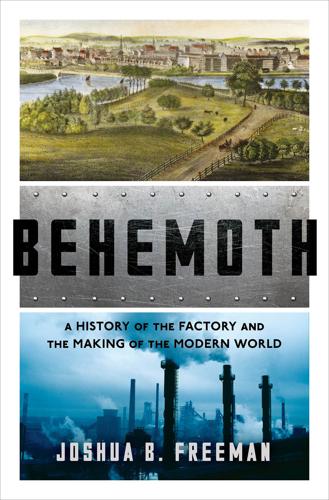
Behemoth: A History of the Factory and the Making of the Modern World
by
Joshua B. Freeman
Published 27 Feb 2018
To cut labor costs, merchants increased the rent and introduced wide looms, on which, instead of making a single item, large pieces of knitted material could be produced and then cut and sewed to make cheap goods, including stockings. Also, many merchants began paying in truck rather than cash. Faced with declining income and what they saw as the debasement of their trade, the frameworkers rallied under the banner of the mythical General Ludd, targeting wide frames and merchants who were cutting wages. Over the course of a year, an estimated one thousand knitting frames in Nottinghamshire, Leicestershire, and Derbyshire were destroyed. It took the passage of a law making framebreaking a capital crime to halt the attacks. The “croppers” in West Riding, Yorkshire, formed a second battalion in King Ludd’s army.
…
To restore order, four thousand troops were sent to occupy West Riding.89 In Lancashire, a third eruption of worker violence broke out, including food riots and assaults on mills using steam-powered weaving equipment. The mill attacks—including one by a crowd of over a hundred, marching behind a straw effigy of General Ludd, which burned down a mill owner’s house before being fired on by a military unit, killing at least seven protesters—reflected the impact of mechanization on the hand-loom weavers. Initially, the factory system led to boom times for handweavers, as spinning machinery produced a bountiful supply of cheap yarn and a growing demand for weavers.
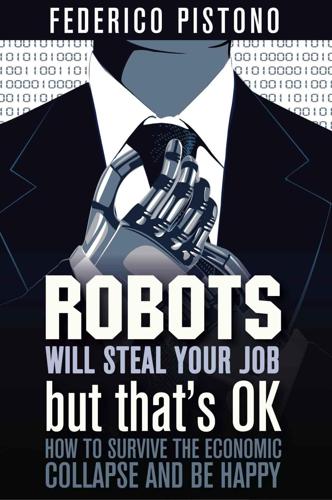
Robots Will Steal Your Job, But That's OK: How to Survive the Economic Collapse and Be Happy
by
Pistono, Federico
Published 14 Oct 2012
Whether or not any of it really happened is irrelevant. What matters is that news of the incident spread, and were distorted, like every good folk story. Whenever frames were sabotaged, people would jokingly say "Ned Ludd did it". His actions inspired the folkloric character of Captain Ludd, also known as King Ludd or General Ludd, who became the alleged leader and founder of a movement called, not surprisingly, ‘The Luddites’. The Luddites can be traced back to Nottingham, England, around 1811. It was composed mostly of hosiery and lace workers, English textile artisans who protested – often by destroying mechanised looms – against the changes produced by the Industrial Revolution.

The Knowledge Illusion
by
Steven Sloman
Published 10 Feb 2017
Their favorite tool of protest was the “Great Enoch,” a giant sledgehammer—crafted by a blacksmith named Enoch Taylor—and they used it to smash industrial machinery throughout England. They also clashed with police in scuffles that often turned deadly. The Luddites claimed to be led by a mysterious figure called King Ludd, Prince Ludd, or General Ludd. In reality, no such person existed. It was a merely a shout-out to Ned Ludd’s act of defiance in Leicester. Protest movements based on political and economic grievances usually fade fairly quickly from the public imagination, and the details of Ned Ludd’s smashing of his machine are not that well known today, but the Luddites have been a cultural touchstone for centuries.

Enshittification: Why Everything Suddenly Got Worse and What to Do About It
by
Cory Doctorow
Published 6 Oct 2025
These children were used to displace the organized guilds of textile workers who operated the older machines. Those workers were unable to get help from Parliament, so they formed guerrilla armies and propagated the half-joking myth that they were led by a giant called Ned Ludd (or sometimes King or General Ludd). They called themselves Luddites. Never let anyone tell you that the Luddites were afraid of technology or angry about “progress.” That’s a lie propagated by history’s winners, whose great fortunes required oceans of blood from child laborers, murdered protesters, and enslaved Africans in the “New World” who provided the cotton for their machines.
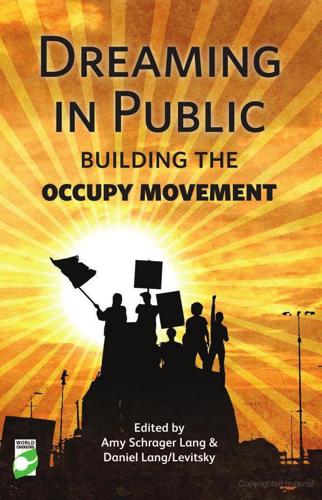
Dreaming in Public: Building the Occupy Movement
by
Amy Lang
and
Daniel Lang/levitsky
Published 11 Jun 2012
Much the same as the Demoiselles of the Arièges, the Luddites were left in fear for their way of life and they fought back in what we can see in hindsight were both losing battles. Where the Luddites interest me is their name. Named after Ned Ludd, a man who may or may not have existed but was rumored to have angrily destroyed a machine a generation earlier, the name took on a mythical significance. Ned Ludd became General Ludd or King Ludd, the personification of the cause, a heroic leader who was said to live in Sherwood Forest, that old stomping ground of another mythical talisman, Robin Hood. It’s like that famous line in The Man Who Shot Liberty Valance: ‘When the legend becomes fact, print the legend.’ Essentially it didn’t matter who Ned Ludd was or Robin Hood or William Wallace or even Jesus – it’s what and who they come to represent.

Hacking Capitalism
by
Söderberg, Johan; Söderberg, Johan;
At the time of their rebellion, culminating in 1811–1813, the Jacquard loom had not yet been diffused to Great Britain.4 Their attacks were mainly directed against the power loom and related, organisational changes in the trade. Luddites conducted nightly raids to smash woollen mills and weaving frames and their operations were commanded by the fictive ‘general Ludd’. The English crown had to deploy 14,400 soldiers in the region to crush the nightly insurgencies. Quite remarkably, more English soldiers were mobilised against the Luddites than had been sent to Portugal four years earlier to face Napoleon’s army.5 Still, given the resources and logistics commanded by the state and the capitalists, the workers had very limited chances of stalling the emerging capitalist system.
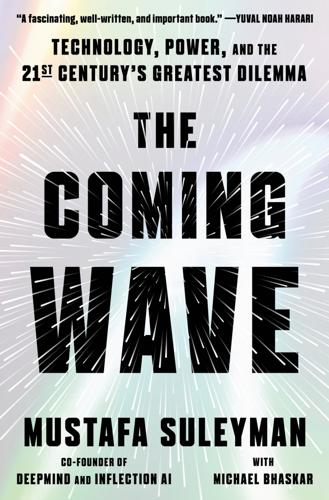
The Coming Wave: Technology, Power, and the Twenty-First Century's Greatest Dilemma
by
Mustafa Suleyman
Published 4 Sep 2023
They decided to fight back. In 1807, six thousand weavers demonstrated over pay cuts, a protest broken up by saber-wielding dragoons who killed a protester. From there a more violent campaign began to form. In 1811 the saboteurs got a name after a Nottingham mill owner received a series of letters from “General Ludd and the Army of Redressers.” No reply was forthcoming, and on March 11 unemployed weavers raided local mills, destroying sixty-three machines and stepping up the campaign. In the months of clandestine raids that followed, hundreds of frames were destroyed. “Ned Ludd’s Army” hit back. All they wanted, they felt, was a fair wage and dignity.
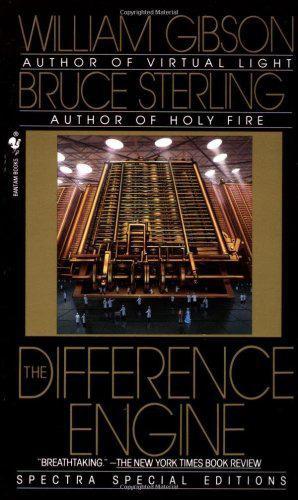
The Difference Engine
by
William Gibson
and
Bruce Sterling
Published 31 Aug 1990
"Did you tell that fact to Mr. Oliphant?" "No." Mallory, feeling himself on thin ice, said nothing more. "Perhaps that's just as well," Fraser said, after a thoughtful pause. "Mr. Oliphant's a bit fanciful at times, and 'Captain Swing' is quite a famous name in conspiracy; a mythical personage, much like 'Ned Ludd,' or 'General Ludd.' The Swing bands were Luddites of the countryside, years ago. Arsonists mostly, rick-burners. But in the Time of Troubles, they grew savage, and killed a deal of the landed gentry, and burned down their fine mansions." "Ah," said Mallory. "Do you think this fellow is a Luddite, then?" "There are no more Luddites," Fraser said calmly.

Superintelligence: Paths, Dangers, Strategies
by
Nick Bostrom
Published 3 Jun 2014
Fears about automation and job loss are of course not new. Concerns about technological unemployment have surfaced periodically, at least since the Industrial Revolution; and quite a few professions have in fact gone the way of the English weavers and textile artisans who in the early nineteenth century united under the banner of the folkloric “General Ludd” to fight against the introduction of mechanized looms. Nevertheless, although machinery and technology have been substitutes for many particular types of human labor, physical technology has on the whole been a complement to labor. Average human wages around the world have been on a long-term upward trend, in large part because of such complementarities.
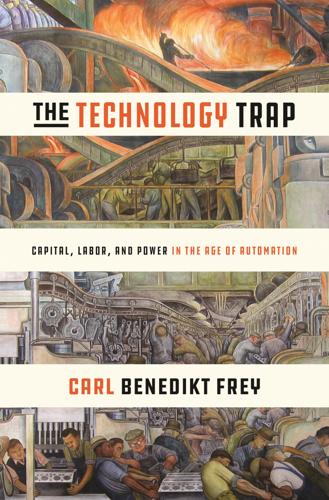
The Technology Trap: Capital, Labor, and Power in the Age of Automation
by
Carl Benedikt Frey
Published 17 Jun 2019
What the various machines that were smashed had in common is that they threatened jobs. And there were many incidents of rebellion. Jeff Horn explains: Named after a supposed Leicester stockinger’s apprentice named Ned Ludham who responded to his master’s reprimand by taking a hammer to a stocking frame, the followers of “Ned Ludd,” “Captain Ludd,” or sometimes “General Ludd” targeted this machine for destruction. The movement began in the lace and hosiery trades early in February 1811 in the Midlands triangle formed by Nottingham, Leicester, and Derby. Protected by exceptional public support within their communities, Luddite hands conducted at least 100 separate attacks that destroyed about 1,000 frames (out of 25,000), valued at £6,000–10,000.

The Singularity Is Nearer: When We Merge with AI
by
Ray Kurzweil
Published 25 Jun 2024
It’s not clear whether Ned Ludd actually existed, but legend has it that he accidentally broke textile factory machinery, and any equipment damaged thereafter—either mistakenly or in protest of automation—would be blamed on Ludd.[25] When the desperate weavers formed an urban guerrilla army in 1811, they declared General Ludd their leader.[26] These Luddites, as they were known, revolted against factory owners—they first directed their violence primarily at the machines, but bloodshed soon ensued. The movement ended with the imprisonment and hanging of prominent Luddite leaders by the British government.[27] Ned Ludd was never found.